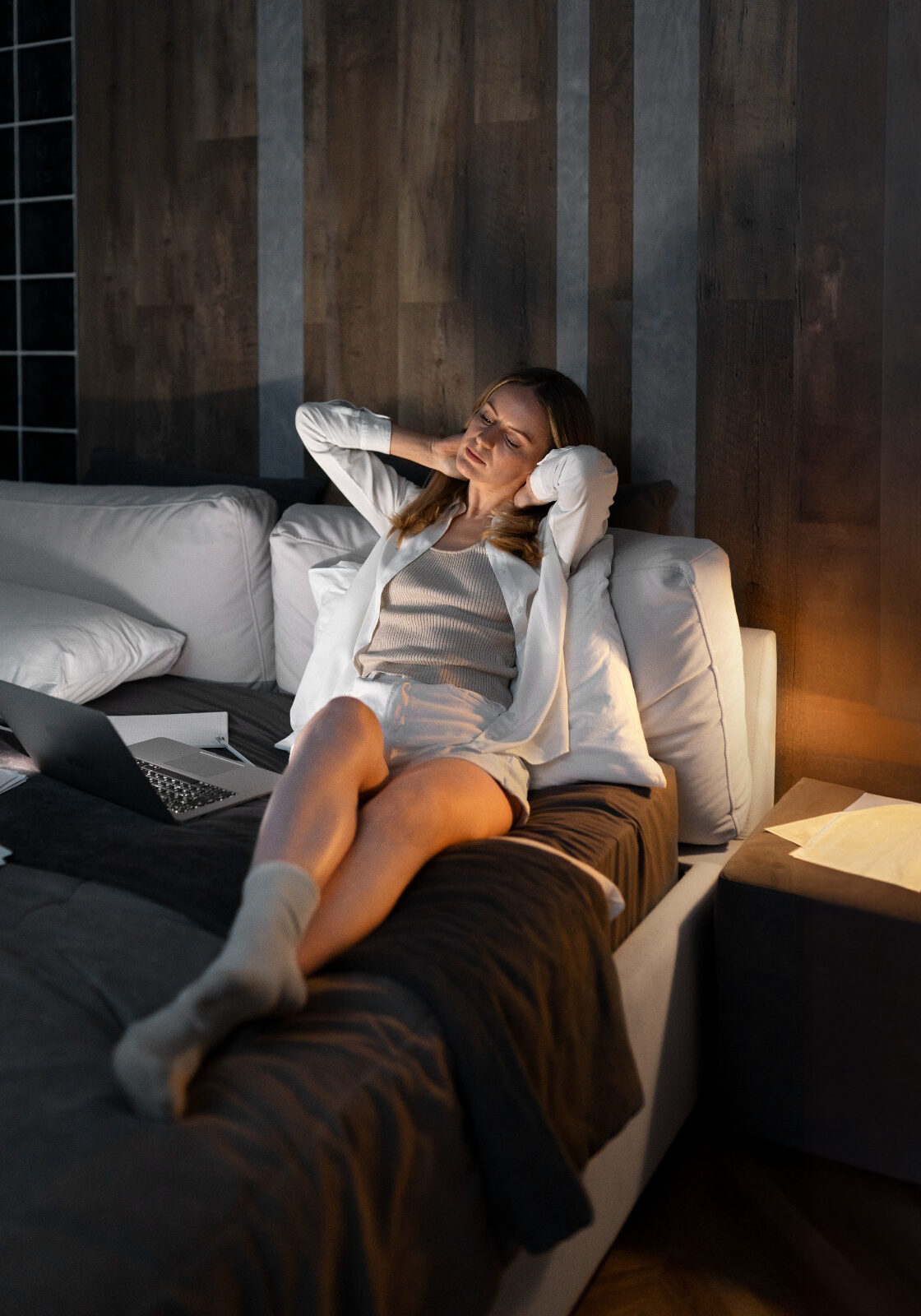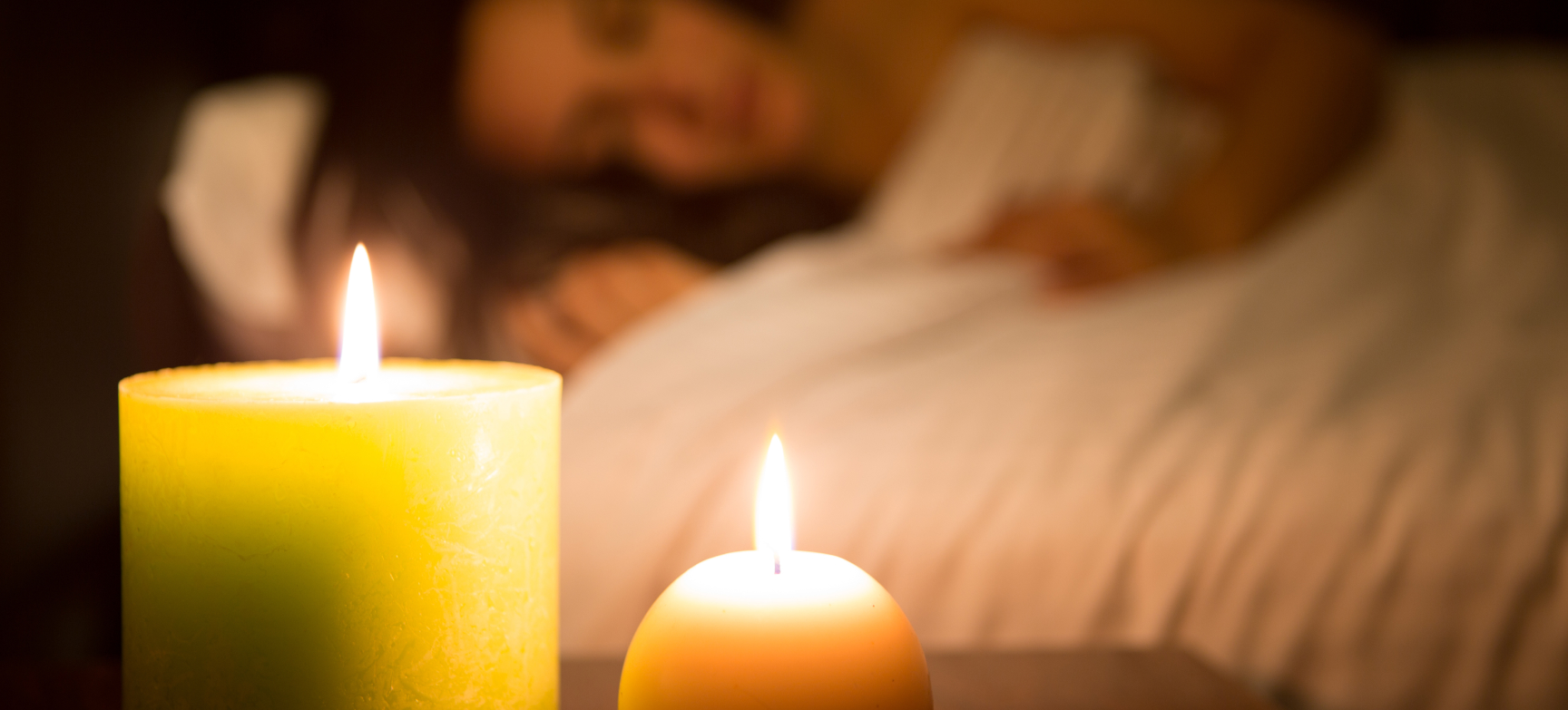Why Sleep Could Be the Most Important Thing You’re Missing
When life gets busy, sleep is often the first thing we sacrifice. But skipping rest doesn't just make you feel tired , it affects your body at every level. Real health starts with good sleep, and understanding why it can help you rethink the way you approach your daily routine.
In this article, we'll break down why sleep matters more than you might think, what happens when you don’t get enough, and simple steps you can take to reclaim better nights and better days.
What Your Body Does While You’re Sleeping
Sleep isn’t just about shutting off for a few hours. While you rest, your body is hard at work:
- Healing muscles and tissues that have been stressed throughout the day
- Balancing hormones that control hunger, stress, and growth
- Strengthening memory and focus by sorting and storing new information
- Supporting the immune system, making it easier to fight off illness
Most adults need 7 to 9 hours of sleep each night to feel healthy and stay alert. But what really makes a difference is the quality and depth of that sleep, not just the number of hours.
How Lack of Sleep Shows Up in Your Life
You might think losing a few hours of sleep here and there isn’t a big deal. But sleep deprivation builds up quietly and shows itself in ways you might not immediately connect:
- Feeling easily irritated or stressed
- Having trouble concentrating or remembering things
- Catching colds and infections more often
- Struggling with cravings for sugar and processed foods
- Gaining weight without major changes in diet or exercise
- Feeling anxious, down, or emotionally flat
In the long term, poor sleep is linked to more serious issues like heart disease, diabetes, and weakened mental health. Good sleep is not a bonus, it’s the foundation that holds everything else up.
Why Modern Life Makes Sleep Harder
It’s not just in your head, getting quality sleep today is more challenging than it was for previous generations. Here’s why:
- Artificial Light: Screens and city lights throw off your brain's natural sleep signals, making it harder to unwind at night. The blue light from electronics, in particular, suppresses melatonin production, the hormone that helps regulate sleep.
- Constant Stimulation: Emails, notifications, and endless scrolling keep your mind constantly engaged, preventing your nervous system from winding down. This overstimulation makes it difficult to relax before bed.
- Unnatural Rhythms: Shift work, long commutes, and busy schedules push you out of sync with your body's natural cycles, disrupting your sleep patterns. Lifestyle habits like late-night caffeine, heavy meals, and irregular sleep schedules also wreak havoc on your natural rhythms.
- Stress Overload: Chronic stress keeps the body in survival mode, making it hard for your parasympathetic nervous system (the body’s rest and digest response) to activate, which is essential for falling asleep.

These factors combined make sleep more elusive for many, but understanding the root causes can help you make the changes needed to improve your sleep quality.
Effective Strategies That Can Help You Sleep Better
There’s no magic solution, but combining a few simple habits can make a big difference in how well you sleep. Here’s why these habits work and how they help create an optimal environment for rest:
Set a Natural Sleep-Wake Rhythm
Going to bed and waking up at the same time every day helps regulate your body's internal clock (circadian rhythm). This consistency helps your body know when it's time to relax and when it’s time to wake up. By sticking to a routine, even on weekends, you’re training your body to optimise its sleep cycles, making it easier to fall asleep and wake up feeling refreshed.
Let Your Brain Cool Down
Give yourself 30–60 minutes to wind down before bed. Turning off bright screens and dimming the lights helps reduce blue light exposure, which can suppress melatonin, the hormone that regulates sleep. Relaxing activities like reading, stretching, or meditating help calm your mind, making it easier to transition to sleep.
Create a Sleep-Friendly Environment
A calm, restful bedroom is essential for quality sleep. To create the best environment, keep your room dark and quiet by using blackout curtains or an eye mask to block light, and consider earplugs or a white noise machine to minimise distractions. Darkness signals to your body that it’s time to wind down, while a quiet space helps prevent interruptions. Maintain a comfortable temperature, ideally between 16-18°C (60-65°F), to support your body’s natural cooling process for sleep. A cool room promotes relaxation, while a room that's too warm or cold can disrupt sleep cycles. Finally, invest in a supportive mattress and comfortable pillows to reduce discomfort and improve rest, ensuring you wake up feeling refreshed.
Watch What You Consume Late in the Day
Caffeine, alcohol, and heavy meals can all interfere with your sleep. Caffeine is a stimulant that can stay in your system for hours, so avoid it after mid-afternoon. Alcohol may make you feel drowsy but can disrupt your sleep cycles later in the night. Eating a large meal or sugary foods can also lead to discomfort, making it harder to relax. Try to keep dinner light and early, giving your body time to digest before sleep.
Connect Back to Natural Rhythms
Getting outside during the day, especially in the morning, helps reset your body’s internal clock. Even 10-20 minutes of natural sunlight can boost your melatonin levels later at night, making it easier to fall asleep. Natural light exposure during the day helps reinforce the body's circadian rhythms, signaling when it’s time to be awake and when it’s time to sleep.
By incorporating these habits into your routine and creating a sleep-friendly environment, you're helping your body regain its natural ability to rest. These small adjustments can make a big difference in improving your sleep quality.
Tools That Can Support Deeper Rest
While building strong habits is key, a few natural tools can support better sleep when used mindfully:
- Magnesium: Supports muscle relaxation and calms the nervous system
- Herbal teas: Chamomile, lemon balm, and valerian root are gentle options
- Weighted blankets: The gentle pressure can help calm anxiety and improve sleep quality
- Essential oils: Scents like lavender and cedarwood may encourage relaxation
These aren’t "fixes" by themselves, but they can tip the balance in your favour.
Why Grounding Matters for Sleep
Modern life keeps most of us disconnected from nature, and that disconnection affects more than we realise. Grounding, physically connecting your body to the Earth, can help reset natural rhythms, balance cortisol (your stress hormone), and calm the nervous system.
Simple grounding practices include walking barefoot on grass or soil, sitting under a tree, or using grounding mats indoors. Many people find they sleep more deeply and wake feeling more refreshed after regular grounding.
How WellGen’s Human Regenerator Jet Can Support Better Sleep
At WellGen, we focus on helping the body heal from the inside out. One of the ways we do this is through our advanced cell regeneration therapy, powered by the Human Regenerator technology.
The Human Regenerator builds on the idea of grounding by providing negative ions and electrons in infinite numbers to the body. These elements are known to promote better sleep and improve circadian rhythm. During a session, it helps calm your nervous system, ease stress, and brings the body back into a more balanced state, the perfect conditions for deep, restorative sleep.
Regular sessions can:
- Help your body shift out of stress mode and into a more relaxed, restful state
- Support the natural production of hormones like melatonin, which are key for healthy sleep
- Boost overall energy and vitality, making it easier to fall asleep and stay asleep through the night
When your cells are in balance and your nervous system is calm, your body becomes better prepared for deep, restorative sleep. At WellGen, we’ve seen how supporting the body at a cellular level not only improves sleep but also helps you wake feeling more refreshed, think more clearly, and feel a stronger sense of wellbeing. The Human Regenerator offers a natural, non-invasive way to activate the body’s own healing processes, starting at the source: your cells.
Sleep Is Your Hidden Superpower
Sleep is one of the most powerful, underused tools for better health, sharper focus, emotional resilience, and longevity. Building a lifestyle that supports healthy sleep is not about quick fixes, it's about creating steady, positive habits that allow your body to rest, heal, and thrive.
Good sleep isn’t a luxury. It’s a foundation for a stronger, healthier life.

